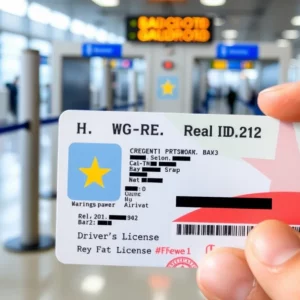News Summary
President Trump has unexpectedly rescinded an executive order against Paul Weiss, a notable law firm. This decision has stirred significant controversy, raising concerns about political pressure in legal representation. The firm has committed to providing pro bono services and altering hiring practices, sparking criticism from within the legal community. The implications of this agreement on the independence of law firms and their ability to represent clients impartially continue to be a topic of heated debate.
Trump Rescinds Executive Order Against Paul Weiss in Controversial Turn of Events
In a surprising twist, President Donald Trump has rescinded an executive order aimed at the prominent law firm Paul, Weiss, Rifkind, Wharton & Garrison LLP. This high-profile case has set the legal community ablaze with speculation and outrage, pointing to significant implications for representation and political pressures within the profession.
Background of the Controversy
Originally issued on March 14, the executive order had severe ramifications for Paul Weiss, a multinational firm headquartered in New York, with more than 1,000 attorneys and a revenue exceeding $2 billion annually. The order put the firm in the crosshairs of federal scrutiny, terminating government contracts and suspending security clearances for its lawyers. The rationale provided by Trump was accusatory, claiming that the firm was involved in activities that undermined the U.S. judicial system.
Many in the legal field quickly condemned the move, with notable figures like Democratic lawyer Marc Elias openly criticizing the implications of such an order. This action followed a pattern, as Trump had previously targeted other law firms, including Perkins Coie and Covington & Burling, indicating a broader strategy to heighten tensions between his administration and certain legal representatives.
Turning Point: The Meeting with Brad Karp
Shortly after the controversy erupted, a meeting took place between Trump and Paul Weiss chairman Brad Karp. This meeting resulted in the withdrawal of the executive order in exchange for the firm committing to provide $40 million in pro bono legal services that support Trump’s administration’s initiatives. Furthermore, Paul Weiss pledged to adopt “merit-based” hiring practices, openly rejecting Diversity, Equity, and Inclusion (DEI) policies; a significant shift given Trump’s prior executive order aimed at abolishing such initiatives within the federal landscape.
The agreement came amid a backdrop of dissent within the legal community. For example, Rachel Cohen, an associate at Skadden Arps, resigned in protest of the deal, her resignation email highlighting the perceived capitulation of Paul Weiss to the Trump administration’s demands.
Community Response and Implications
As news of the agreement spread, more than 300 associates from various law firms collectively voiced their opposition, signing a letter decrying the idea that corporate law firms could be coerced into compromising their principles. Brad Karp defended the resolution, claiming it aligned with the firm’s commitment to political independence. He further assured that the agreement would bolster the firm’s standing while navigating the politically charged landscape.
Criticism of this scenario has been fierce. Observers noted that the backlash against Paul Weiss signifies a troubling trend in the legal profession, where firms may cave to government pressures, potentially hampering their ability to represent clients impartially. Significant reactions included assertions that if prominent law firms do not resist political pressure, it could undermine future representation of unpopular causes.
Legal and Ethical Concerns
The executive order faced widespread criticism for its potential infringement on constitutional rights, such as freedom of speech and association. The firm was also accused of discriminatory practices against its own attorneys, a claim that fueled the flames of dissent within the legal ecosystem.
Notably, Trump’s allegations extended to Mark Pomerantz, a former partner at Paul Weiss, who had been involved in a pro bono lawsuit linked to the events of January 6 and was reportedly under investigation concerning Trump’s financial dealings. Analysts within the legal field have pointed out that the fallout from these events raises serious questions about the integrity of the legal profession and its ability to withstand undue influence.
The Broader Implications
The situation surrounding Paul Weiss has sparked a broader conversation about the challenges law firms may face when representing clients with politically charged issues. Legal experts have articulated concerns that continued governmental interference could effectively silence dissenting legal advice and undermine the core principles intended to uphold justice.
As the dust settles from this latest episode, the legal community continues to grapple with the implications of an agreement that many view as a troubling precedent. The prospect of law firms yielding to political pressure raises significant questions about the future of legal representation in an increasingly polarized world.
Deeper Dive: News & Info About This Topic
HERE Resources
Trump Administration Targets Lawyers with Legal Retaliation Memo
Trump Targets Law Firms: Legal Independence at Risk
Additional Resources
- The Hill
- Wikipedia: Paul, Weiss, Rifkind, Wharton & Garrison
- New York Times
- Encyclopedia Britannica
- Google Search: Trump executive order Paul Weiss



























